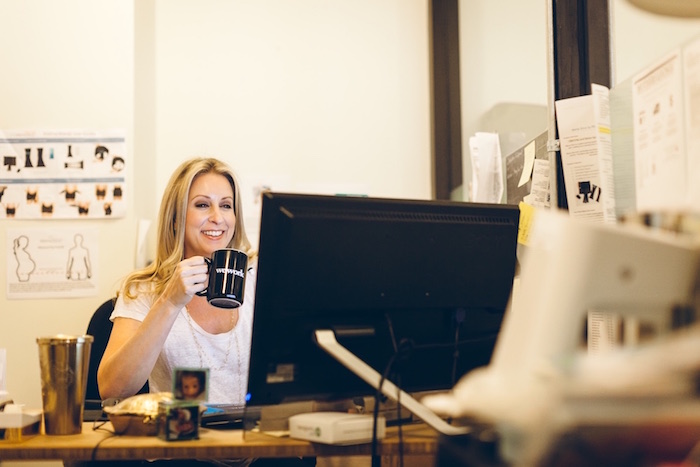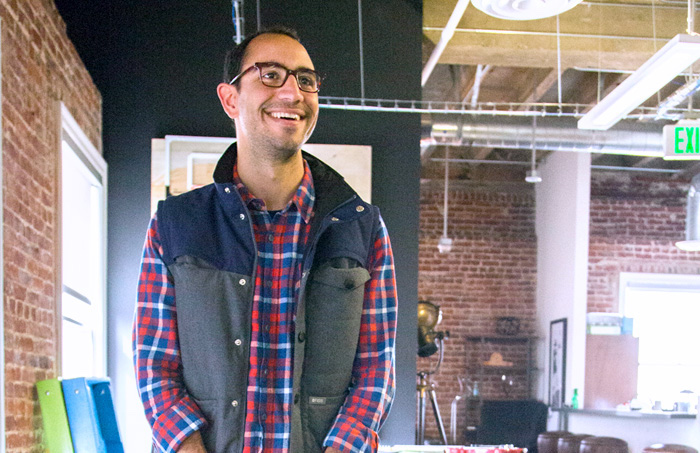Entrepreneur Dan Smarg doesn’t mince words: People might like drawing comparisons between San Francisco and Los Angeles—Silicon Valley versus Silicon Beach—but if you’re starting a business today, Los Angeles wins hands down.
Sure, it doesn’t have an Amazon yet. There’s no Google or Facebook, no homegrown company that has made headlines with a record-breaking IPO. (Although everybody’s betting that Snap will be the first within a couple of months.) But Smarg says that doesn’t bother him.
“Silicon Beach is bustling precisely because we are not established, because we have no track record,” says the WeWork Promenade member and founder of a photography app called FotoGenie. “We’re comprised entirely of iconoclasts and lean innovators. We kick convention to the curb.”
The entrepreneurs we interviewed for this piece agreed that Los Angeles was the perfect place for them to start a business. That includes Rob Emrich, whose Santa Monica-based mobile advertising platform, The Mobile Majority, was named the region’s fastest growing tech startup for the second year in a row. The Los Angeles Business Journal calculated its two-year revenue growth at an incredible 4,588 percent.
“When I moved here five years ago, I had been considering San Francisco, Los Angeles, and New Orleans,” says Emrich. “I feel very lucky to have landed here.”

Emrich says L.A.’s tech sector has exploded over the past few years. It now holds its own in a city known for film and television, music, and media.
“I think San Francisco is an industry town for technology, just like D.C. is an industry town for politics,” says Emrich. “This place is far too big for any one industry to dominate it, even entertainment.”
Here’s a little of what L.A. has going for it:
A huge startup scene that’s still growing. L.A. is already the third largest startup hub in the world, behind Silicon Valley and New York City. And it’s growing by leaps and bounds. The $6 billion in funding startups received in 2016 has tripled over the past four years. “And it’s on its way to getting bigger,” says WeWork Gas Tower member Gina Pak, cofounder of the legal platform Lawgood, “which is good because it’ll bring in more connections, more funding, and more chances of success for startups here.”
More engineers than any other city. That’s right, colleges here produce more graduates with engineering degrees than New York or Boston. “There are many top-tier colleges in Southern California,” says WeWork Santa Monica-based entrepreneur David Baird, founder of a platform for the music industry called Gigmor, “and graduates often want to stay in the area.” And because the startup scene isn’t so intense, your new engineer isn’t as likely to be poached after being on the job for a couple of months.
All the right ingredients for success. “I am a little biased, since I am an L.A. native, but I think L.A. is a great place to start a business because of the access to pretty much everything,” says Jill Bigelow, who creates products for new mothers like Mama Strut. “Within a relatively small area, you have some of the best of what you need to start a business, from developers, artists, and designers to lawyers, financial experts, and operations specialists.”

There are some things that L.A. still lacks: for starters, there aren’t as many deep-pocketed investors who can single-handedly fund the next big startup. But venture capitalists here are more likely to join together to fund promising companies.
If you want to get a sense of what L.A. is like for investors, talk to Arteen Arabshahi. He and two of his colleagues are forming a venture capital firm that’s betting on L.A. businesses.
“San Francisco and the Bay Area will always be the hub of the country’s startup scene, at least for the foreseeable future,” says Arabshahi, vice president of the newly founded Fika Ventures. “But L.A. has reached a point where it’s totally viable. As far as I’m concerned, it’s pretty much an equal playing field.”
And it’s more than that. He believes that L.A. has advantages that San Francisco just can’t match.
“Some industries—the obvious ones are media, fashion, and branding—have a strategic advantage when they’re based here,” says Arabshahi. “But there are some less obvious examples as well, such as consumer-facing marketplaces.”

Native State Foods is one of those companies. Cofounder Claudio Ochoa says he can’t imagine starting his business anywhere else.
“As a healthy food startup, L.A. was the ideal place for us to start our business,” says the WeWork Playa Vista member. “Because of the connection to the outdoors, it’s a place where people are really in touch with the environment, sustainability, and wellness.”
Ochoa says he thinks founders here are more collaborative than in other startup hubs.
“It’s still competitive in L.A., but I think there is a greater sense of community,” he says. “We’d all like the billion-dollar exit, but there is a better sense of balance and purpose in L.A. As a result, founders are more open and supportive with each other. You’re more likely to become friends than competitors here.”
Lawgood’s Pak says that L.A.’s friendliness makes it easy to be a first-time entrepreneur.
“I’m fairly a newbie to the startup scene,” says Pak, “but my sense of what makes L.A. a great place for startups right now is that it’s a fairly small, close-knit startup community, which makes everyone more approachable and accessible.”
And one other thing: L.A. may be an expensive city, but San Francisco prices have skyrocketed in the past few years.
“One of the main reasons we’re in L.A. versus San Francisco or New York is that it’s still affordable to live here,” says Pak. “So for a company that’s bootstrapping, that’s a great thing.”







